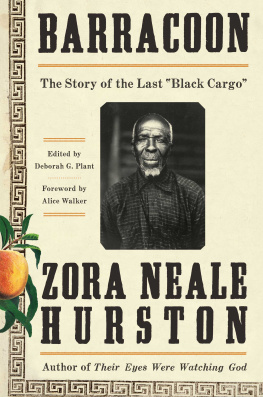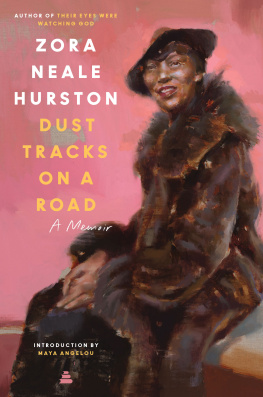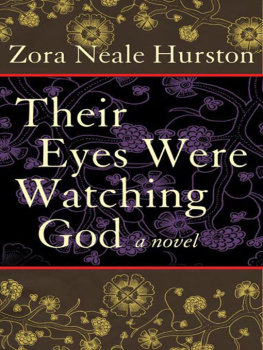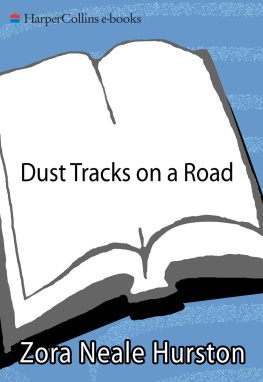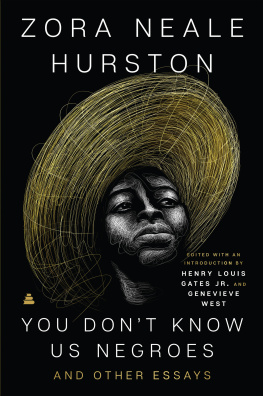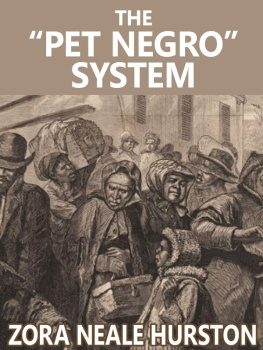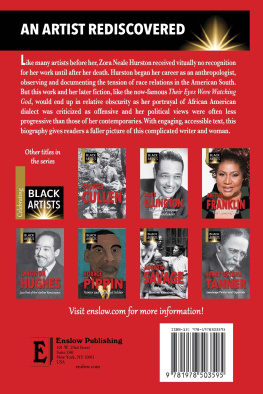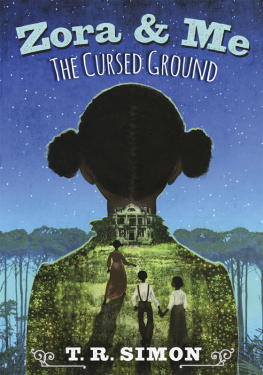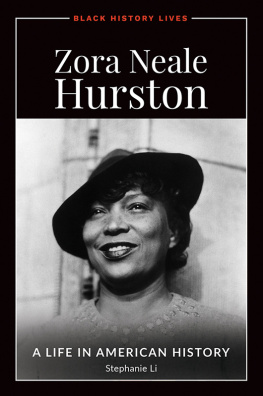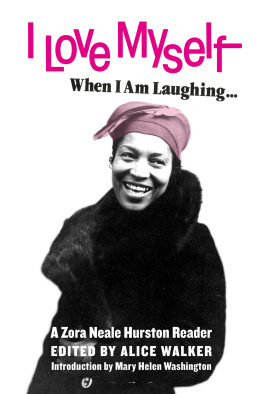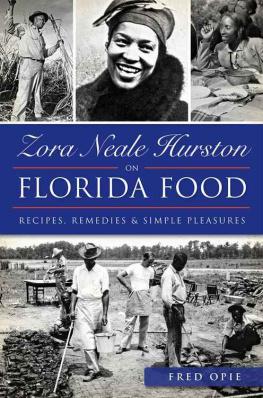Zora Neale Hurston - Barracoon: The Story of the Last Black Cargo
Here you can read online Zora Neale Hurston - Barracoon: The Story of the Last Black Cargo full text of the book (entire story) in english for free. Download pdf and epub, get meaning, cover and reviews about this ebook. year: 2018, publisher: Amistad, Harper Collins, genre: Detective and thriller. Description of the work, (preface) as well as reviews are available. Best literature library LitArk.com created for fans of good reading and offers a wide selection of genres:
Romance novel
Science fiction
Adventure
Detective
Science
History
Home and family
Prose
Art
Politics
Computer
Non-fiction
Religion
Business
Children
Humor
Choose a favorite category and find really read worthwhile books. Enjoy immersion in the world of imagination, feel the emotions of the characters or learn something new for yourself, make an fascinating discovery.
- Book:Barracoon: The Story of the Last Black Cargo
- Author:
- Publisher:Amistad, Harper Collins
- Genre:
- Year:2018
- Rating:5 / 5
- Favourites:Add to favourites
- Your mark:
- 100
- 1
- 2
- 3
- 4
- 5
Barracoon: The Story of the Last Black Cargo: summary, description and annotation
We offer to read an annotation, description, summary or preface (depends on what the author of the book "Barracoon: The Story of the Last Black Cargo" wrote himself). If you haven't found the necessary information about the book — write in the comments, we will try to find it.
Zora Neale Hurston: author's other books
Who wrote Barracoon: The Story of the Last Black Cargo? Find out the surname, the name of the author of the book and a list of all author's works by series.
Barracoon: The Story of the Last Black Cargo — read online for free the complete book (whole text) full work
Below is the text of the book, divided by pages. System saving the place of the last page read, allows you to conveniently read the book "Barracoon: The Story of the Last Black Cargo" online for free, without having to search again every time where you left off. Put a bookmark, and you can go to the page where you finished reading at any time.
Font size:
Interval:
Bookmark:
But the inescapable fact that stuck in my craw, was: my people had sold me and the white people had bought me.... It impressed upon me the universal nature of greed and glory.
Zora Neale Hurston, Dust Tracks on a Road
Barracoon: The Spanish word barracoon translates as barracks and is derived from barraca, which means hut. The term barracoon describes the structures used to detain Africans who would be sold and exported to Europe or the Americas. These structures, sometimes also referred to as factories, stockades, corrals, and holding pens, were built near the coast. They could be as insubstantial as a slave shed or as fortified as a slave house or slave castle, wherein Africans were forced into the cells of dungeons beneath the upper quarters of European administrators. Africans held in these structures had been kidnapped, captured in local wars and raids, or were trekked in from the hinterlands or interior regions across the continent. Many died in the barracoons as a consequence of their physical condition upon arrival at the coast or the length of time it took for the arrival of a ship. Some died while waiting for a ship to fill, which could take three to six months. This phase of the traffic was called the coasting period. During the years of suppression of the traffic, captives could be confined for several months.
Barracoon
T hose who love us never leave us alone with our grief. At the moment they show us our wound, they reveal they have the medicine. Barracoon: The Story of the Last Black Cargo is a perfect example of this.
Im not sure there was ever a harder read than this, for those of us duty bound to carry the ancestors, to work for them, as we engage in daily life in different parts of the world where they were brought in chains. And where they, as slaves to cruel, or curious, or indifferent, white persons (with few exceptions) existed in precarious suspension disconnected from their real life, and where we also have had to struggle to protect our humanity, to experience joy of life, in spite of everything evil we have witnessed or to which we have been subjected.
Reading Barracoon, one understands immediately the problem many black people, years ago, especially black intellectuals and political leaders, had with it. It resolutely records the atrocities African peoples inflicted on each other, long before shackled Africans, traumatized, ill, disoriented, starved, arrived on ships as black cargo in the hellish West. Who could face this vision of the violently cruel behavior of the brethren and the sistren who first captured our ancestors? Who would want to know, via a blow-by-blow account, how African chiefs deliberately set out to capture Africans from neighboring tribes, to provoke wars of conquest in order to capture for the slave trade peoplemen, women, childrenwho belonged to Africa? And to do this in so hideous a fashion that reading about it two hundred years later brings waves of horror and distress. This is, make no mistake, a harrowing read.
We are being shown the wound.
However, Zora Hurstons genius has once again produced a Maestrapiece. What is a Maestrapiece? It is the feminine perspective or part of the structure, whether in stone or fancy, without which the entire edifice is a lie. And we have suffered so much from this one: that Africans were only victims of the slave trade, not participants. Poor Zora. An anthropologist, no less! A daughter of Eatonville, Florida, where truth, what was real, what actually happened to somebody, mattered. And so, she sits with Cudjo Lewis. She shares peaches and watermelon. (Imagine how many generations of black people would never admit to eating watermelon!) She gets the grisly story from one of the last people able to tell it. How black people came to America, how we were treated by black and white. How black Americans, enslaved themselves, ridiculed the Africans; making their lives so much harder. How the whites simply treated their slaves like pieces of machinery. But machinery that could be whipped if it didnt produce enough. Fast enough. Machinery that could be mutilated, raped, killed, if the desire arose. Machinery that could be cheated, cheerfully, without a trace of guilt.
And then, the story of Cudjo Lewiss life after Emancipation. His happiness with freedom, helping to create a community, a church, building his own house. His tender love for his wife, Seely, and their children. The horrible deaths that follow. We see a man so lonely for Africa, so lonely for his family, we are struck with the realization that he is naming something we ourselves work hard to avoid: how lonely we are too in this still foreign land: lonely for our true culture, our people, our singular connection to a specific understanding of the Universe. And that what we long for, as in Cudjo Lewiss case, is gone forever. But we see something else: the nobility of a soul that has suffered to the point almost of erasure, and still it struggles to be whole, present, giving. Growing in love, deepening in understanding. Cudjos wisdom becomes so apparent, toward the end of his life, that neighbors ask him to speak to them in parables. Which he does. Offering peace.
Here is the medicine:
That though the heart is breaking, happiness can exist in a moment, also. And because the moment in which we live is all the time there really is, we can keep going. It may be true, and often is, that every person we hold dear is taken from us. Still. From moment to moment, we watch our beans and our watermelons grow. We plant. We hoe. We harvest. We share with neighbors. If a young anthropologist appears with two hams and gives us one, we look forward to enjoying it.
Life, inexhaustible, goes on. And we do too. Carrying our wounds and our medicines as we go.
Ours is an amazing, a spectacular, journey in the Americas. It is so remarkable one can only be thankful for it, bizarre as that may sound. Perhaps our planet is for learning to appreciate the extraordinary wonder of life that surrounds even our suffering, and to say Yes, if through the thickest of tears.
Alice Walker
March 2018
O n December 14, 1927, Zora Neale Hurston took the 3:40 p.m. train from Penn Station, New York, to Mobile, to conduct a series of interviews with the last known surviving African of the last American slaverthe Clotilda. His name was Kossola, but he was called Cudjo Lewis. He was held as a slave for five and a half years in Plateau-Magazine Point, Alabama, from 1860 until Union soldiers told him he was free. Kossola lived out the rest of his life in Africatown (Plateau). Hurstons trip south was a continuation of the field trip expedition she had initiated the previous year.
Oluale Kossola had survived capture at the hands of Dahomian warriors, the barracoons at Whydah (Ouidah), and the Middle Passage. He had been enslaved, he had lived through the Civil War and the largely un Reconstructed South, and he had endured the rule of Jim Crow. He had experienced the dawn of a new millennium that included World War I and the Great Depression. Within the magnitude of world events swirled the momentous events of Kossolas own personal world.
Zora Neale Hurston, as a cultural anthropologist, ethnographer, and folklorist, was eager to inquire into his experiences. I want to know who you are, she approached Kossola, and how you came to be a slave; and to what part of Africa do you belong, and how you fared as a slave, and how you have managed as a free man? Kossola absorbed her every question, then raised a tearful countenance. Thankee Jesus! Somebody come ast about Cudjo! I want tellee somebody who I is, so maybe dey go in de Afficky soil some day and callee my name and somebody say, Yeah, I know Kossula.
Font size:
Interval:
Bookmark:
Similar books «Barracoon: The Story of the Last Black Cargo»
Look at similar books to Barracoon: The Story of the Last Black Cargo. We have selected literature similar in name and meaning in the hope of providing readers with more options to find new, interesting, not yet read works.
Discussion, reviews of the book Barracoon: The Story of the Last Black Cargo and just readers' own opinions. Leave your comments, write what you think about the work, its meaning or the main characters. Specify what exactly you liked and what you didn't like, and why you think so.

